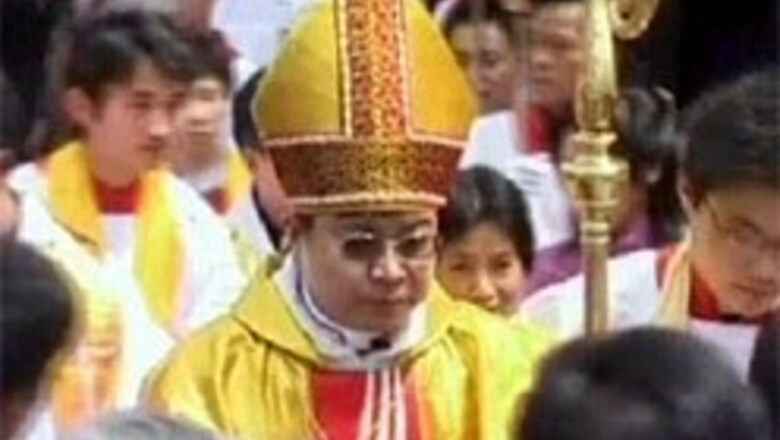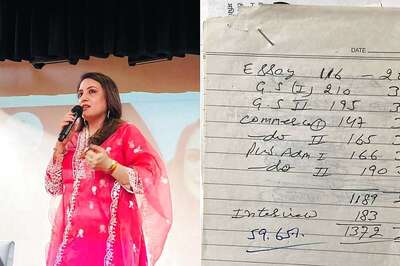
views
Beijing: China's state-approved Catholic church on Wednesday installed a bishop without Vatican approval - the second this week - in a move that may hinder talks to re-establish ties ended after communists took control of China in 1949.
The Chinese Patriotic Catholic Association ordained Liu Xinhong as bishop at the city of Wuhu's St. Joseph's Church in the eastern province of Anhui.
There was no immediate reaction from the Vatican, which traditionally appoints its own bishops. China's insistence on naming bishops is a key sticking point in talks to re-establish diplomatic ties between China and the Holy See.
Hong Kong's Cable TV showed Liu, dressed in a yellow robe, bowing his head to receive a yellow head piece from a clergyman. "My feeling at this moment is to thank the lord and our God from the depth of my heart," he said, addressing the congregation.
The footage showed Liu surrounded by followers, who went up to greet him and shake his hand as he exited the church. He then posed for pictures with other clergymen in front of the church.
On Sunday, China's official church ordained Ma Yinglin as a bishop in the southwestern province of Yunnan.
Most Chinese Catholics are only allowed to worship in government-controlled churches, but millions are loyal to the Vatican. Formal Sino-Vatican ties would give some security to China's Vatican loyalists, who are frequently fined and sometimes sent to labor camps.
Cardinal Joseph Zen, the Vatican's top appointee in Hong Kong, a semiautonomous Chinese territory that enjoys religious freedom, said Tuesday that talks on resuming relations should stop because of the ordainments.
PAGE_BREAK
Zen said the Vatican thinks Liu isn't qualified, and had asked for more time to vet Ma's qualifications but that Beijing refused.
The two major obstacles to Sino-Vatican ties are the Holy See's recognition of China's rival, Taiwan, and its power to appoint bishops -- which Beijing views as interference in its internal affairs.
The Vatican has indicated it is willing to give up ties with Taiwan, which split from China amid civil war in 1949, but the two sides have not appeared to make headway on the issue of bishop appointments.
If Beijing conceded on the matter, it would pre-empt the authority of the Chinese Patriotic Catholic Association.
Zen speculated that it was the church leaders -- not the Chinese government leadership -- who are the driving force behind the recent bishop ordainments.
But Chinese Patriotic Catholic Association Vice Chairman Liu Bainian said the new appointments are meant to fill shortages and that he didn't mean to offend the Vatican. He said more ordainments can be expected.
"Right now more than 40 dioceses across the country don't have bishops. Picking bishops is the church's legitimate need. It's not aimed at Sino-Vatican relations," Liu said in remarks broadcast on Hong Kong's radio.
















Comments
0 comment